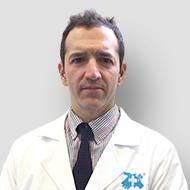
Specialist committee is working to produce global guidelines for veterinary practice.
A newly inaugurated WSAVA committee aims to raise awareness of the latest thinking in veterinary oncology and promote best practice globally.
Named the WSAVA Oncology Working Group, its members include specialists from around the world, including past president of WSAVA and the Veterinary Society of Surgical Oncology Dr. Jolle Kirpensteijn.
The Committee is chaired by Argentinian veterinary surgeon and president of the Latin American Veterinary Oncology Society Dr. Martin Soberano.
The other members of the Working Group are:
- Dr. Nick Bacon - an RCVS-recognised specialist in small animal surgery (oncology) and a European specialist in small animal surgery (oncology)
- Dr. Pachi Clemente-Vicario – a diplomate in oncology and small animal internal medicine from the American College of Veterinary Internal Medicine (ACVIM)
- Dr. Antonio Guiliano – a board-certified oncologist with the European College of Veterinary Internal Medicine (ECVIM)
- Dr. Ann Hohenhaus – a diplomate in oncology and small animal internal medicine from ACVIM
- Dr. Natalia Ignatenko – who completed her residency at the Department of Oncology Centre for Clinical Veterinary Medicine, Munich in 2017.
The members are beginning work on the development of a set of accessible global guidelines for veterinary oncology practice. While these guidelines are in development, the WSAVA Oncology Working Group will be producing practical tools to help veterinary surgeons improve standards of treatment and educate pet owners about cancer.
Dr. Soberano said: “The WSAVA Oncology Working Group aims to overcome global variations in oncology treatment and raise awareness of the different types of tumors affecting companion animals.
“Many cancers in these animals also occur in humans so we see an opportunity to improve the lives of both animal and human patients by raising standards of treatment for veterinary oncology patients.”
Images (c) WSAVA.



 The Veterinary Medicines Directorate (VMD) is inviting applications from veterinary students to attend a one-week extramural studies (EMS) placement in July 2026.
The Veterinary Medicines Directorate (VMD) is inviting applications from veterinary students to attend a one-week extramural studies (EMS) placement in July 2026.